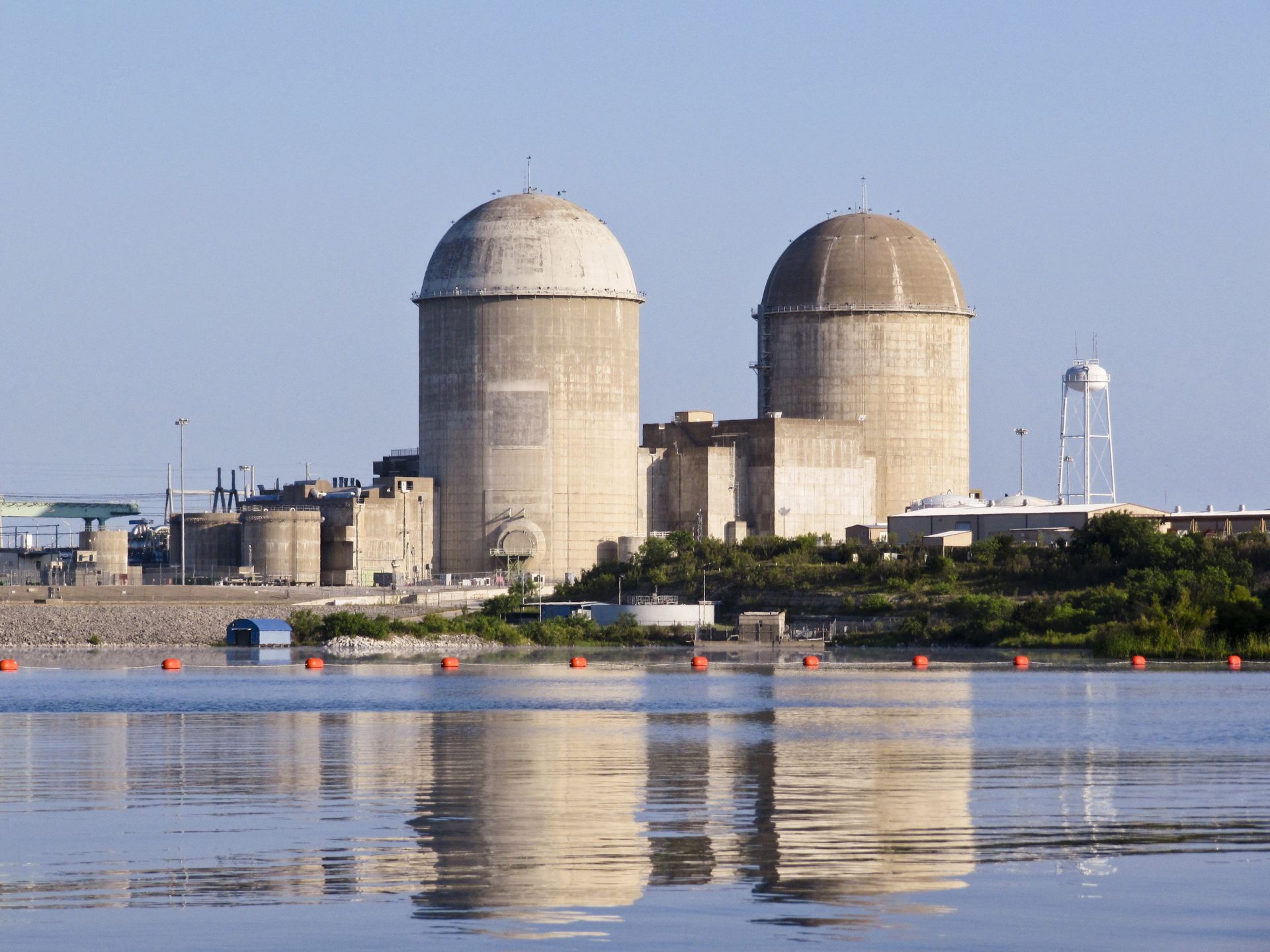Turkey Point nuclear plant. (Image: FPL)
The Nuclear Regulatory Commission is seeking public comment on the scope of its supplemental environmental impact statement (SEIS) on the subsequent renewed licenses for Turkey Point-3 and -4, twin pressurized water reactors operated by Florida Power & Light (FPL). It’s the second time around for both the NRC and FPL—an SLR environmental scoping process conducted in 2018 already yielded renewed licenses for Turkey Point in December 2019. According to an October 7 NRC press release, “The staff intends to examine the environmental issues the commission determined were not properly evaluated for the subsequent license renewal term, as well as any new information for Turkey Point site–specific issues.”
Energy Harbor’s Beaver Valley plant, located on the Ohio River near Shippingport, Pa. (Photo: Energy Harbor)
Two critical factors for the success of nuclear industry outages are safety and efficiency. This includes personal and nuclear safety for the team members working on the outage, equipment safety through proper inspections and maintenance, and ultimately public safety when a reactor system is returned to service, free of defects and ready for reliable power production.
Students participate in the “Nuclear Mythbusting Pitch Competition,” hosted by the ANS YMG. (Photo: Julie McCallum)
To kick off the new academic year, the ANS Young Members Group hosted the online “Nuclear Mythbusting Pitch Competition” on September 22. Students competed in debunking nuclear misconceptions and misrepresentations in popular culture. While having fun and winning prizes, they set the record straight regarding nuclear science and technology.
The Portsmouth Gaseous Diffusion Plant. (Photo: DOE)
The Department of Energy’s Office of Environmental Management has renewed a $2.5 million grant to Ohio University to support community redevelopment around the DOE’s Portsmouth Site. Since 2016, the DOE has provided a total of $8.2 million to the university for work with the communities.
The DOE grant, which began on October 1, will be administered over five years through September 30, 2027. A previous grant expired on September 30.
Crews make progress tearing down the former Criticality Experiment Laboratory. The teardown began this past summer after months of deactivation activities. (Photo: DOE)
Work crews at the Department of Energy’s Oak Ridge Site in Tennessee have successfully completed the demolition of the former Criticality Experiment Laboratory. Crews worked this past summer to bring down the dilapidated 1940s-era facility, also known as Building 9213.
The Pickering nuclear power plant. (Photo: OPG)
The government of Ontario has announced its support for extending the operation of Ontario Power Generation’s Pickering nuclear plant for a year past its scheduled 2025 closure date, adding that a much longer extension is also being mulled.
OPG, at the government’s request, has reviewed its operational plans and concluded that the facility can continue to safely produce electricity for an additional year, according to a recent news release.
Aircraft line the runway at Eielson AFB in December 2020. (Photo: U.S. Air Force/Senior Airman Keith Holcomb)
The Department of the Air Force and the Defense Logistics Agency–Energy have released a request for proposals (RFP) for the construction and operation of a microreactor in central Alaska. The Department of Defense wants a 20-year supply of electricity and steam from a 1–5-MW microreactor, but the Eielson Air Force Base (AFB) Microreactor Pilot Program will go beyond a simple power purchase agreement and put the reactor through its paces with tests, at least annually, of the reactor’s walk-away safety and black-start capabilities. The final RFP is available at sam.gov.
Finland’s Olkiluoto-3. (Photo: TVO)
The Unit 3 EPR at Finland’s Olkiluoto nuclear power plant has reached its full capacity of approximately 1,600 MWe for the first time, plant owner and operator Teollisuuden Voima Oyj has announced. Olkiluoto-3 is now the most powerful reactor in Europe and the third most powerful globally, according to TVO. (Currently, the world champions in that department are China’s 1,660-MWe Taishan-1 and -2, also EPRs.)
Luminant’s two-unit Comanche Peak plant in Glen Rose, Texas. (Photo: Vistra Corporation)
Vistra Corporation announced yesterday that it is seeking 20-year life extensions for its Comanche Peak reactors and has submitted an application for license renewals to the Nuclear Regulatory Commission.
Operated by Vistra subsidiary Luminant and located in Glen Rose, Texas, Comanche Peak is home to two Westinghouse-supplied pressurized water reactors. The 1,218-MWe Unit 1 began commercial operation in August 1990, with the 1,207-MWe Unit 2 joining in August 1993. The original 40-year licenses for Units 1 and 2 expire in February 2030 and February 2033, respectively.
The Savannah River Site (Photo: DOE)
The Department of Energy has extended Savannah River Nuclear Solutions’ (SRNS) management and operating contract at the Savannah River Site (SRS) in South Carolina for up to an additional five years. The announcement was made recently 29 by engineering company Fluor, which leads the SRNS joint venture, along with Newport News Nuclear and Honeywell.




















